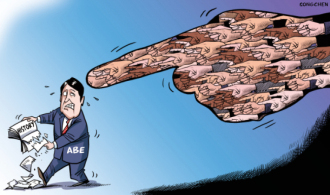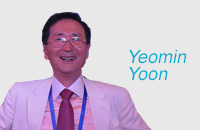Court case mirrors US world police mentality
(China Daily) Updated: 2016-03-02 07:54
 |
|
Student leader Joshua Wong Chi-fung. [Photo/Agencies] |
The Hong Kong government has issued a statement in response to yet another example of wanton interference by the US government in the special administrative region's internal affairs.
After the start of a trial of three leaders of radical student groups, charged with leading the illegal intrusion and occupation of the SAR government complex that triggered the "Occupy Central" movement in November 2014, the US Congressional-Executive Commission on China posted a statement on its official website.
In its statement the CECC not only showers the three men who are accused of illegally breaking and entering into the official complex with praise and encouragement, it also dictates how the court should handle the case involving "political" figures that Washington apparently has a special interest in.
The HK government stressed in its response that it is committed to upholding the rule of law. The prosecution of the suspects is being conducted according to the laws of the SAR, and the three accused are being tried by the court in an independent, fair and open manner.
It emphasized that the Department of Justice handles all criminal prosecutions independently, free from any interference.
That is to say the court is impartial and there is no question of it being a political prosecution. The statement rightly concludes by declaring that prosecutions and trials in Hong Kong are entirely internal affairs of the SAR and no foreign governments should try to influence the judicial process in the SAR.
The CECC statement is further evidence Washington has no qualms about trampling on the judicial independence of other countries and regions whenever it wants to. China in particular has long been accustomed to such displays of American cowboy-ism in the US' handling of foreign relations.
As well as exhibiting the US' world police mentality, the CECC statement is also a verbal grandstanding aimed at boosting the morale of the opposition camp in Hong Kong.
Many people in China, including in Hong Kong, as well as people around the world are convinced that "Occupy Central" was another attempt at a so-called "color revolution" orchestrated by foreign forces in the hope of somehow tripping up China's modernization drive.
It is no coincidence that the "Occupy Central" campaign has been accompanied by the rise of radicalism and separatism in the SAR. In that sense, the US intervention in this court case, though outrageous, does not come as a surprise.











